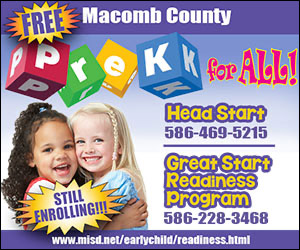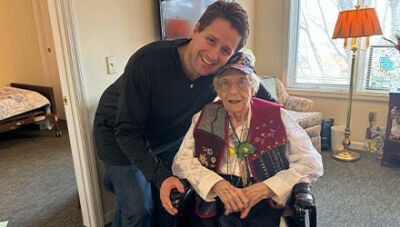ST. CLAIR SHORES — At their April 3 meeting, the St. Clair Shores City Council approved a request to participate in the new National Opioids Settlement. This will be the third settlement the city has opted into.
Assistant City Manager Michael Greene said the first two settlements gave the city about $117,000. The amount for the newly signed settlement has yet to be determined, as it depends on how many communities decide to opt in to receive the money.
“For this new one, unfortunately we don’t know yet. The deadline to opt in isn’t until April 18, and at that time, the state will have a better idea,” Greene said. “Because the formula, the way it works, it’s based on how many communities opt in so they get a pot of money and then it will get distributed from there once they’re settled.”
Communities that have a population larger than 10,000 people have the opportunity to opt into the settlement, Greene said. However, some communities feel they would gain more from filing their own lawsuit and taking it head on. Greene said these communities are also on the larger side.
Greene said there are five distributors and pharmacies named in the settlements. He said the state of Michigan has finalized settlements with four of them and the only outstanding one is Walgreens.
Greene said that there are rules that come with these settlements and that communities are limited on what they can use the money for. Greene said it helps communities with health and human services departments, but since St. Clair Shores doesn’t have that, they’re going to use it for other things.
“We’re going to be looking to do a lot of opioid-related training with our public safety folks, and we’ll also be able to buy them specialty equipment or additional Narcan that can help fight drug overdoses,” Greene said.
If administered quickly and effectively, Narcan can save lives by reversing the effects of an overdose.
Greene said they haven’t heard much about what other communities are doing with the money. However, he said what he’s heard from other city managers is that most of the other communities are in the same boat as St. Clair Shores and don’t have a health and human services department.
“Everyone’s kind of in the same bucket right now,” Greene said. “We didn’t start receiving our funding until, I believe, (the) end of January, early February, so for the most part a lot of communities have just kind of been brainstorming what the potential is going to be and what we can do.”
Fire Chief James Piper said the number of overdoses in St. Clair Shores is going down.
“Thankfully for us here in St. Clair Shores, I would say we’re probably below the national average,” Piper said. “We have had an effect, we’ve seen it over the years, but our particular numbers on the EMS side are actually going, trending down over the last like four years.”
Though numbers are trending downward, they still see an average of about one overdose per week, Piper said.
Police Chief Jason Allen said they see the same thing. He said when the police are called for an overdose, the Fire Department will go with them, and they work together on the cases. They peaked in 2020 during the pandemic, Allen said, but they’ve seen a decrease since then.
“Today, basically a third of the way through the year, we’re projected to be around (the) low 20s, whereas before we were probably like he said in the 50s,” Allen said. “So it’s definitely reduced.”
Piper said good enforcement and a big push on treatment contribute to the reduced numbers.
Allen said there are a number of programs available for residents to get help for substance abuse including Hope Not Handcuffs through Families Against Narcotics. This allows people to come into the police station 24 hours a day, seven days a week to get help setting up treatment.
Piper said they would have to look at the rules the state set up, but from what he’s seen, the money could probably be used for more training and education.
“It’ll probably be earmarked directly for education and intervention,” Piper said. “So things like an increased amount of Narcan kits for, say, the police if they get there right on scene. We may be able to do things like increased training and awareness in the community.”
Greene said the city is happy they get to participate in the settlements and they’re excited.
“At the end of the day, the city’s just happy we get to be part of this to try to do what we can to fight this and make people’s lives safer out there,” Greene said. “We’re excited for the opportunity, but we know there’s (a) long ways to go.”
 Publication select ▼
Publication select ▼



























